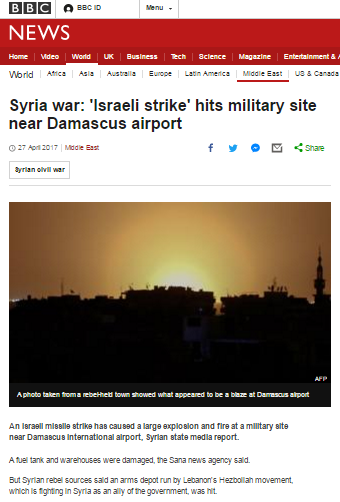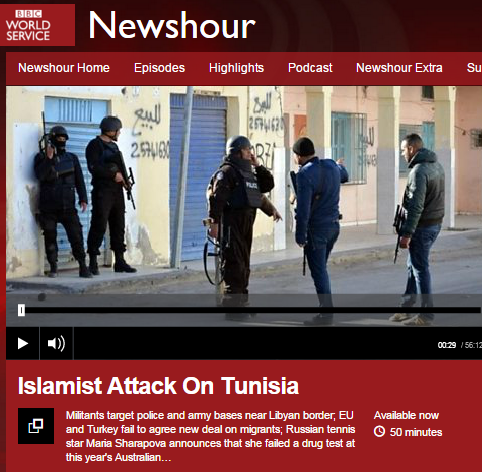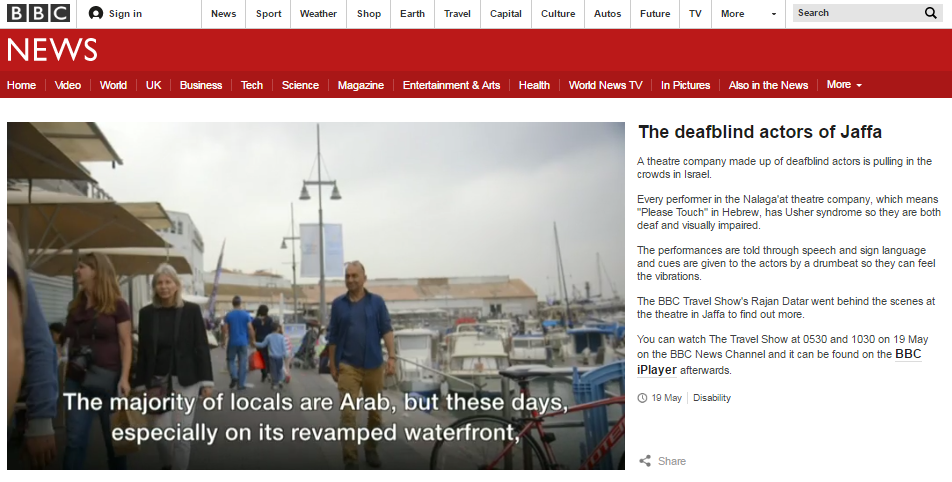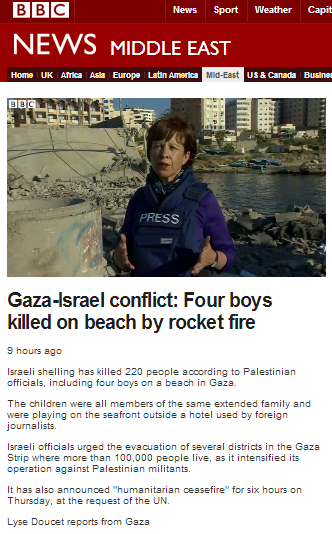On April 27th an article titled “Syria war: ‘Israeli strike’ hits military site near Damascus airport” appeared on the BBC News website’s Middle East page. As can be understood from its headline, the report relates to an alleged Israeli airstrike in Syria and it is based on claims made by sources linked to the Assad regime.
“An Israeli missile strike has caused a large explosion and fire at a military site near Damascus international airport, Syrian state media report.
A fuel tank and warehouses were damaged, the Sana news agency said. […]
Sana said several missiles had been fired at a military site south-west of the airport, causing explosions that resulted in some material losses.
Pro-government Al-Mayadeen TV cited sources as saying that missiles had been fired by Israeli jets flying inside the Israeli-occupied Golan Heights.”
The article also includes an alternative version of the story sourced from groups opposed to the Assad regime.
“But Syrian rebel sources said an arms depot run by Lebanon’s Hezbollah movement, which is fighting in Syria as an ally of the government, was hit. […]
Two senior rebel sources based in Damascus told Reuters news agency that the missiles had hit an ammunition depot in a closed military area that was used by Iran-backed militias operating alongside the Syrian army, led by Hezbollah.”
In an insert of analysis by the BBC’s diplomatic correspondent readers are told that Israel “has been conducting an intermittent air campaign to prevent sophisticated weapons transfers to the Lebanese Shia militia group Hezbollah” and that it “clearly intends to continue its campaign against Hezbollah weapons shipments”.
However, as is invariably the case in content relating to such stories, the BBC’s article refrains from giving an accurate description of Hizballah as a terror organisation, provides no factual information concerning the Iranian link to those “weapons shipments” and fails to provide audiences with the relevant context concerning UN Security Council resolution 1701’s requirement of “disarmament of all armed groups in Lebanon” and its ban on “sales or supply of arms and related material” to Hizballah or any other Lebanese militia.
Instead, the article passes off the following two sentences as background information.
“Israel regards Hezbollah, and its key backer Iran, as its biggest threat. It went to war with Hezbollah in 2006 and the group has grown considerably more powerful since then.”
At the end of the article is an insert titled “Recent suspected Israeli attacks in Syria”. First on the BBC’s list is the following:

Readers are not informed what the “Syrian pro-government National Defence Forces” actually are or that they have ties to Iran. Neither are they told that the sources of the claims concerning that alleged strike are, once again, the official Syrian regime news agency Sana together with the Iranian and Syrian regime linked outlet ‘Al Mayadeen’ and Al Jazeera.
Only last year the BBC uncritically amplified claims regarding an ‘Israeli airstrike’ made by Al Mayadeen which later turned out to be fiction. On numerous occasions in the past, the BBC has also amplified baseless propaganda from the Syrian regime. One might therefore have thought that the corporation would take the precaution of thoroughly checking allegations made by unreliable sources such as Al Mayadeen and Sana before amplifying them to its audiences.
Had it done so in this case, the BBC would have learned that security sources in Israel dismissed those reports of Israeli involvement in that April 23rd incident.
The news BBC audiences are getting concerning alleged Israeli actions in Syria clearly cannot meet the standards to which the BBC is supposedly committed as long as it continues to be based on unverified claims made by highly partisan sources and fails to include the background information crucial for proper understanding of such stories.
Related Articles:
Reviewing BBC reporting of Hizballah’s violations of UNSC Resolution 1701
BBC failure to provide context in Hizballah weapons stories continues
In which BBC News manages to avoid Syrian propaganda for a change
More unquestioned amplification of Syrian regime propaganda from BBC News
BBC News amplifies unchallenged Syrian regime propaganda yet again
More soft focus BBC presentation of Hizballah
Terrorist murderer of four Samir Kuntar dubbed ‘militant’ by BBC News




